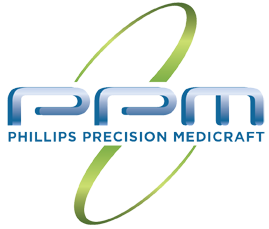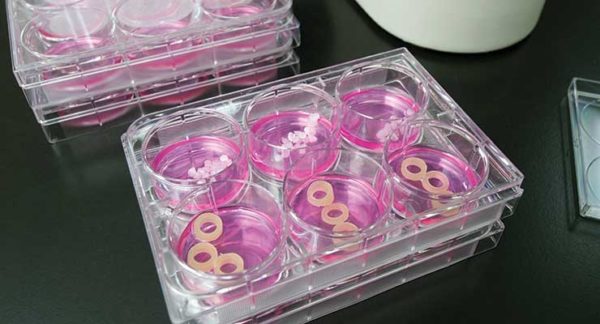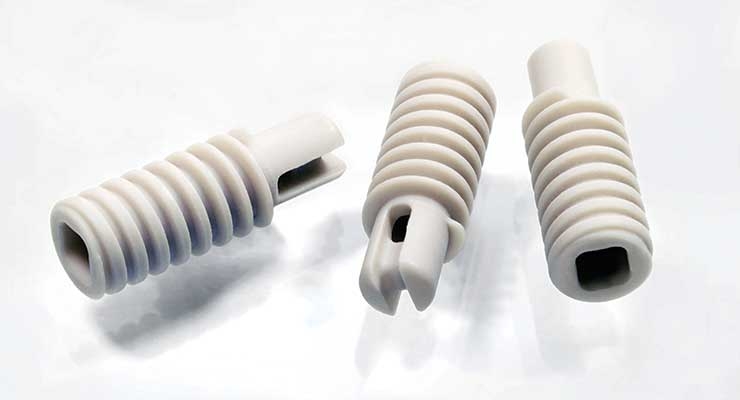As markets expand and orthopedic products become more complex with miniaturized geometries, advanced materials, and multiple uses in or on the body, there has never been a greater need for testing. Electronics, too, are increasingly integrated into devices—especially wearables—creating unique testing challenges. Biocompatibility is always at the forefront—chemistry testing for compounds that either leach or shed from devices is a key tool for testing biocompatibility. Chemical testing combined with toxicological evaluation results deliver a one-two punch that mitigates a significant amount of risk for orthopedic devices (and also saves time and money compared to animal testing).
Another top testing concern is how materials withstand different methods of sterilization, especially since the U.S. Food and Drug Administration (FDA) released its final guidance on “Reprocessing Medical Devices in Health Care Settings: Validation Methods and Labeling Guidance for Industry and Food and Drug Administration Staff” in March 2015. Even if their products were already cleared prior to this guidance, many medical device manufacturers (MDMs) are conducting additional testing to ensure their medical devices can meet these higher levels of scrutiny.
Overall, orthopedics is a fairly traditional market when it comes to designs, materials, and testing. MDMs are comfortable with traditional, tried-and-true measurement tools, such as hand tools, coordinate measurement machines (CMM), and optical comparators (OC) that have been around for decades. They have had success using these methods and do not want to create any uncertainty with the FDA by introducing new testing methods. However, some forward-thinking companies are taking notice of advanced dimensional quality inspection services and automated systems that provide much tighter pass/fail screens, resulting in higher-quality products.




Get Social